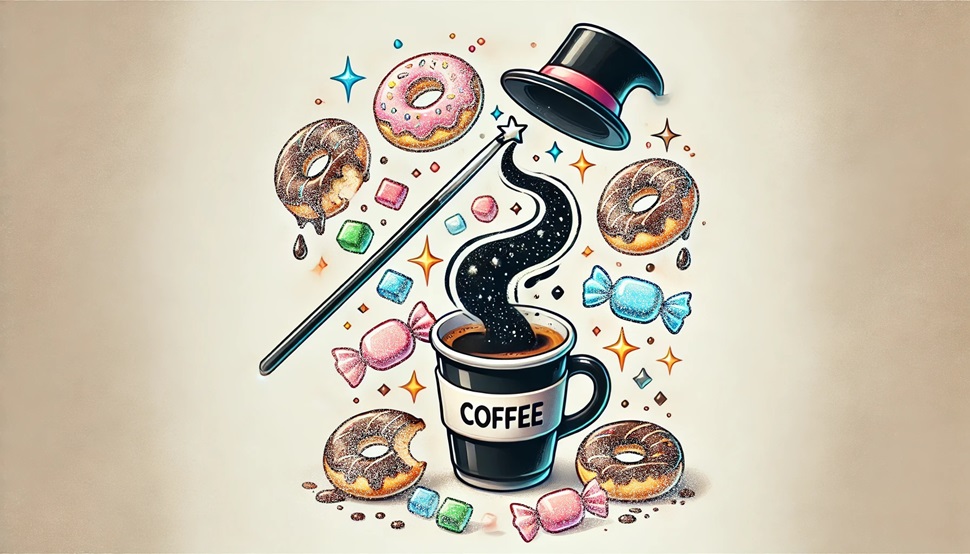Are you tired of complicated meal plans and boring diets? Don’t worry—we’re introducing the coffee loophole diet, a fun way to deal with hunger and get an energy boost using coffee. Diet buffs are enjoying this exciting loophole that controls appetite and replaces meals. But before you proceed on this bumpy ride, let’s break down how it works, the benefits it has, and the potential risks associated with it.
What Is the Coffee Loophole Diet?
As a “diet trick,” coffee has become a popular method of suppressing appetite. The coffee loophole diet allows you to avoid craving full meals. It has invaded the health-conscious space, becoming a sought-after diet hack. The idea is simple: use black coffee to stave off hunger, boost energy levels, and reduce calorie intake. Is it too good to be true? Let’s find out.

Ingredients for the Coffee Loophole Recipe
Before heading to the pros and cons, here’s a very simple how-to for applying the coffee loophole diet:
- Black Coffee (No Sugar) is the main ingredient. The bitter taste can suppress one’s appetite without adding extra calories.
- Cinnamon or Cocoa Powder can be used as flavoring. These spices help improve metabolism with antioxidants.
- Optional: MCT Oil is used in many keto diets and can be added to coffee to boost energy while creating fat-burning processes for a perfectly upgraded coffee.
The recipe is best taken between meals to help you resist the urge to snack.
Benefits of Coffee in Dieting: Why Should Anyone Use Coffee in Dieting?
Let’s discuss why the coffee loophole diet became so popular among other diet tricks. When talking about the coffee diet, no one necessarily associates it with caffeine-high jolts; instead, people say that coffee truly has its real benefits:

- Appetite Suppression: A natural appetite suppressor, black coffee works to curb hunger. The bitter compounds of coffee signal the brain, thus reducing the feeling of hunger. This makes the coffee loophole diet an attractive option for those interested in suppressing appetite without drastic measures.
- Boosts Metabolism: Caffeine is a natural thermogenic agent that raises metabolism and burns more calories. That’s why some use coffee in their loophole diets to lose fat while boosting energy.
- Boosts Mental Acuity and Energy: Apart from helping in dieting, coffee enhances mental acuity, sharpening one’s focus. Many followers of the coffee loophole diet make use of this effect before workouts for added energy.
- Boosts Metabolic Rate: Studies show that including coffee in your diet can increase metabolic rate by 3-11%. This is essential if you want to lose fat and weight.
- Mobilises Fat From Fat Tissue: Caffeine sends signals to fat cells to break them down. Fat needs to be broken down before it can be used and expelled through physical exercise. Coffee also increases the adrenaline content in our blood, aiding the breakdown of fats, which is why caffeine is commonly found in weight loss supplements and diet pills.
Risks of Coffee as a Meal Replacement
Although the coffee loophole diet appeals to many, no diet trick is perfect, and it is important to understand its downsides:
- Too Much Caffeine: Too much caffeine can cause shakiness, nervousness, and even heart palpitations. The coffee diet should not force you to exceed the recommended daily caffeine intake of 400 mg, or about 4 cups of coffee.
- Digestive Problems: Drinking coffee on an empty stomach can result in acid reflux and displace digestive fluids. Excessive coffee intake also leads to dehydration since it is a diuretic. Proper water intake is essential when undertaking the coffee loophole diet.
- Nutrient Deficiency: Relying solely on coffee without a balanced diet can lead to nutrient deficiencies. Although this trick might work temporarily, coffee cannot replace important foods in your diet.
A Balanced Approach: Coffee and Health
While the coffee loophole diet has benefits like appetite suppression and boosting metabolism, it is hardly magical. Moderation is key to success. Drinking black coffee can be a helpful tool, but it should complement a healthy diet rather than replace it. Try adding coffee to nutrient-rich foods instead of skipping meals, and remember that balance is the key to sustainable health.
Conclusion
The coffee loophole diet is certainly an interesting approach but should be attempted with care. It isn’t advisable to use coffee as the primary means of curbing hunger and boosting metabolism for a quick dietary shortcut. While it may help in losing weight, it is unwise to skip meals and rely solely on coffee. If you try this loophole, be sure to balance it with proper hydration, nutritious meals, and mindful consumption.
FAQs
1. Is the Coffee Loophole Diet safe?
Yes, but moderation is important. Drinking too much coffee can result in anxiety, dehydration, and stomach issues. Never rely solely on coffee for weight loss.
2. Can I add sugar or milk to my coffee in the Coffee Loophole Diet?
No. For maximum appetite suppression and low-calorie intake, it is recommended to have only black coffee or, at most, added calories from cinnamon.
3. How much coffee should I drink in the Coffee Loophole Diet?
Do not exceed the suggested 3-4 cups per day, equivalent to 400 mg of caffeine. Respect your body and drink ample water to avoid dehydration.
Research/Resources
- First For Women – Does the Coffee Loophole Really Help with Weight Loss? Top Nutrition Experts Weigh in
- NY Post – Caffeine fix: Do the ‘Coffee Diet’ and the ‘7-second coffee loophole’ really aid weight loss?
- We are Littles – 10 ways Coffee can help you lose weight
- Nutrition Source – Coffee
- Pubmed – Association Between Caffeine Intake and All-Cause and Cause-Specific Mortality: A Population-Based Prospective Cohort Study




